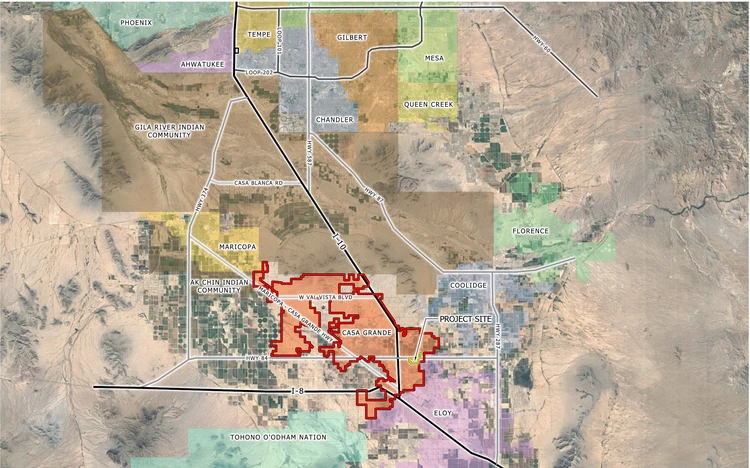Tesla vehicles can operate in a semi-autonomous mode but a safety feature requires drivers to periodically apply pressure to the wheel with their hands. A new bill would fine drivers who bypass that and other safety features on vehicles. /Photo courtesy of Tesla.
By Jerod MacDonald-Evoy | Cronkite News
Drivers who use a “defeat device” to bypass a vehicle’s safety features on cars with automatic driving mechanisms, often referred to as “autopilot modes,” could face fines if a bill that has been revived from the last legislative session becomes law.
Rep. John Kavanagh, R-Fountain Hills, has proposed legislation that would allow police to ticket drivers who attempt to circumvent safety features that are part of vehicles’ self-driving modes.
House bill 2007 is a revised version of a bill the lawmaker previously ran.
“When I wrote the (previous) bill I didn’t talk to anyone in the industry,” Kavanagh said. “In some cases you just drop the bill knowing they’ll come and comment.”
And comment they did.
Aftermarket dealers had major concerns about the previous bill, saying it would tie their hands and penalize shops that add parts to vehicles with autonomous modes, specifically Tesla’s, which Kavanagh’s previous bill primarily targeted.
The new bill doesn’t focus on the issues that concerned aftermarket dealers such as tampering with computer systems or the vehicle itself and focuses on the “defeat devices” that some drivers have been using to trick autonomous modes in some vehicles. The new bill also exempts groups that are testing autonomous vehicles that are authorized to do so in the state such as Waymo.
Kavanagh’s original bill mainly focused on Tesla vehicles.
Tesla’s vehicles can operate in a semi-autonomous mode in which they can regulate speed and make minor corrections. As a Tesla owner, it’s a mode Kavanagh has used and seen the limitations of.
In that mode the cars are not fully autonomous. The cars make sure the driver is still paying attention by having them periodically apply pressure to the wheel with their hands.
However, Kavanagh had seen a video of a Tesla driver asleep at the wheel and learned that some drivers were putting weights or other mechanisms on the steering wheel to trick the car into thinking someone is there.
Last year, the National Highway Traffic and Safety Administration issued a cease-and-desist order to the manufacturer of the “Autopilot Buddy,” declaring the device unsafe. The device, when attached to the steering wheel, gives the car the impression that a driver’s hands are on the wheel.
The website for the company now says that they cannot send to addresses within the United States.
If Kavanagh’s bill were to pass, it would allow law enforcement in the state to issue a traffic citation to anyone driving a vehicle with such a device or with their own makeshift one such as a water bottle shoved in the steering wheel.
The maximum penalty would be up to $250.
“My original motive had nothing to do with repair people and aftermarket equipment providers,” Kavanagh said, adding that he believes the bill is a “slam dunk.”








